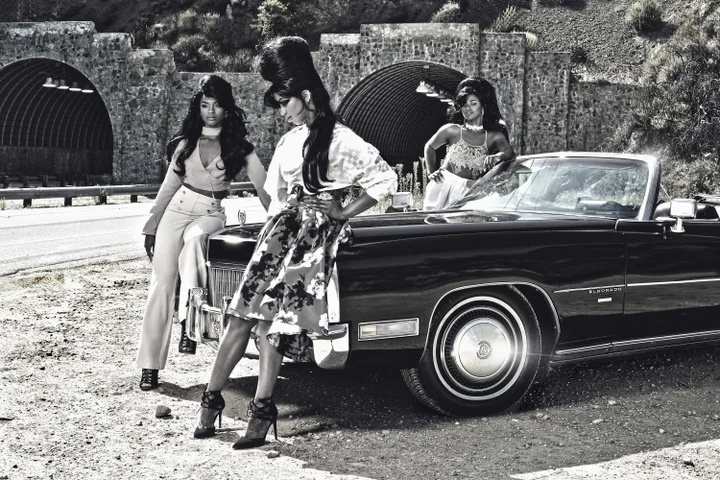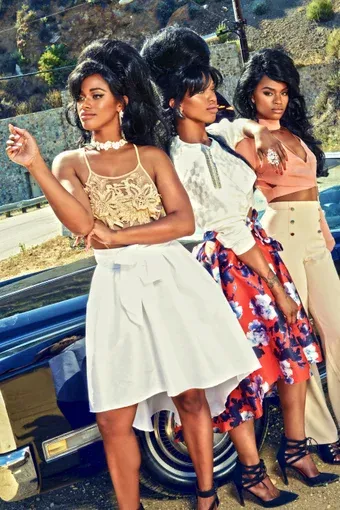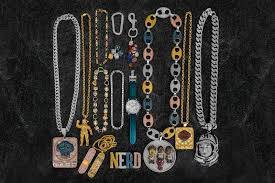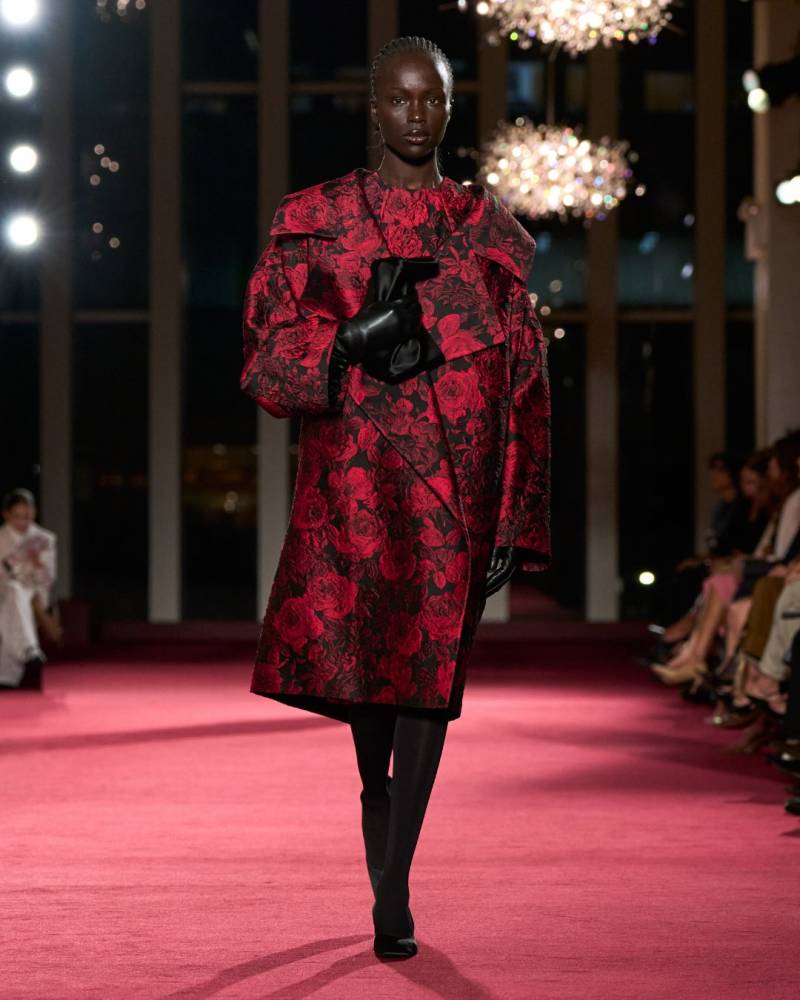Every June, the world comes together to honor the endless contributions that Black musicians past, present, and future make to the culture. However, for the Womack Sisters — yes, of those Womacks — every single day is a celebration of Black music because it’s in their blood. Even though they come from a dynasty of iconic Black artistry, this trio is set on walking their own path in the industry, determined to set a new gold standard for themselves and the next generation of musicians.
When I first meet the Womack Sisters via Zoom, the family dynamic is immediately apparent. Kucha, the baby of the family, is calm and collected, middle child Zeimani is the opinionated, free spirit, and BG, the eldest, radiates the powerful energy of a leader. Those very different, very strong personalities could lend to discord and drama — “We do have our moments that we’re at each other’s throats,” Zeimani laughs — but nothing is more important to these three sisters than remaining a solid unit. Family is the tie that binds them, but it’s also the very thing that drives their stability in work and in play because of the havoc they witnessed while being raised by their parents, songwriters and producer duo Cecil and Linda Womack (professionally known as Womack & Womack). The Womack family tree was widely known for its music but also for its drama and in-fighting, and BG, Zeimani, and Kucha vowed that their personal and professional relationship would never suffer the same broken fate.
“A lot of people have tried to get us to do our own thing and to convince each of us to go solo, “ says Kucha. “But we've always been so serious about being a group act. ”
“As a family, we try to stay together because that energy and that deep history that we have between us is what keeps us sane in the face of all the things we've gone through,” adds Zeimani. “That’s the reason why we called ourselves the Womack Sisters to begin with — to honor our uncles and our dad.”

PHOTO: COURTESY OF ROYAL BINION
Years of traveling around the world to places like Bangkok and Nairobi with their family (which also includes their grandfather, the legendary Sam Cooke, and their uncle, R&B pioneer Bobby Womack) also taught them that the key to staying true to oneself is knowing where you come from. Even with the legacy of rich music flowing through their blood, the Womack Sisters have had to create their own lane sonically in the current music landscape.
In a time where much of the Billboard charts lean more towards pop and R&B, the trio finds its niche in the classic sounds of soul music that they were immersed in as children, but with a modern twist. Their song “Blocked” issues an impatient warning for all wastemen to tune of the sexy pluck of an acoustic guitar. “Lost for Words” is a funky, 1960s-era breakup joint, complete with true-to-genre three-part harmonies and the blare of horns. Their debut single “Darling” and the aesthetics of its accompanying music video — sky high hair, sparkling dresses, and dramatically thick winged eyeliner — evokes the very spirit of Motown. The sisters call their take on the old school sound “retro soul” and “music with a pulse,” an artful physical manifestation of the many lives they’ve lived as individuals and as a family.
“
As a family, we try to stay together because that energy and that deep history that we have between us is what keeps us sane in the face of all the things we've gone through. That’s the reason why we called ourselves the Womack Sisters to begin with — to honor our uncles and our dad.
Despite soul not necessarily being the go-to sound of the current mainstream music moment, one might assume that the Womack Sisters’ iconic lineage would have guaranteed them instant success in the music industry. In reality, it’s actually the opposite; BG, Zeimani, and Kucha have been grinding since their 2017 debut. Five years later, I’m surprised to learn that the sisters are still balancing full-time 9 to 5 gigs and using what they have left over after paying their bills to fund their dreams. Though their family’s impact on culture can’t be understated — who could ever forget “A Change Is Gonna Come” or “If You Think You’re Lonely Now?” — that influence didn’t exactly translate to generational wealth, leaving the Womack Sisters to find their own means of survival.
The sisters admit that it hasn’t exactly been easy to continue on this musical path over the years, especially since entertainment is such a cutthroat environment for artists wanting to have control of their own self-expression. They entered the music game with a clear vision of what they wanted to accomplish and found themselves at odds with label heads and executives who had something else in mind. Determined to do things their own way, even if it cost them major contracts, big stages, and thousands of dollars, the Womack Sisters stood their ground. After all, owning your identity as an artist, particularly as a Black artist, is everything.
“We actually wasted a lot of time in our first years of getting into the music business being too moldable because we wanted people to want to work with us,” reveals BG. “And we ended up in a position that we struggled to get out of for quite some time.”
“That's why we’re so big on independence now, and why it took so long for us to take a deal that fit us,” Kucha continues. “We have to be in control, because music is what we're doing to enjoy our lives, to enjoy our existence.”
“Power is the game of this business,” Zeimani chimes in, her sisters nodding and mmhmm-ing in agreement. “If you don't have a certain level of control over your vision, it won't exist. You have to have enough respect for your dream to know that you are the one who knows what's best for you so that you can take your power.”
This Black Music Month (and beyond), the Womack Sisters are hoping that other Black musicians also embrace the pursuit of ownership and creative independence not just for themselves, but for the generation of artists to come. By holding their ground and asserting their agency, the group aims to create a new normal in the music industry that allows artists to be themselves and still be profitable. It won’t be easy — the corporate machine’s agenda has been going strong for a very long time — but it will be liberating.
“A lot of people have gone through the rough ends of the business, but then closed the door behind them once they got to a certain place,” says BG. “We want to create a platform and later, a music label, that promotes music, ownership, and freedom. That’s what this space needs right now.”
We’re so big on independence now, and it took so long for us to take a deal that fit us. We have to be in control, because music is what we're doing to enjoy our lives, to enjoy our existence.
Slowly but surely, the Womack Sisters are establishing that platform. The pandemic may have thrown some of their plans out of whack, but they’re back on course. Next steps for world domination include building a super network of agents and fellow artists to collaborate closely with (“Everybody wants to nab a big feature, but they're ignoring the talent right beside them,” Zeimani rolls her eyes), securing a permanent band, and booking gigs all over the country. The sisters also have a project coming out, and they’ve warned me that it’s going to be something special for old fans and new converts alike, an ode to soul that will be right on time for the culture.
Suffice to say, the Womack Sisters have a lot on their plate. But they’re not in a rush, especially not after working so hard for so long to get to where they are. All good things take time, and thankfully, these sisters are very patient.
Ineye Komonibo
Refinery 29




